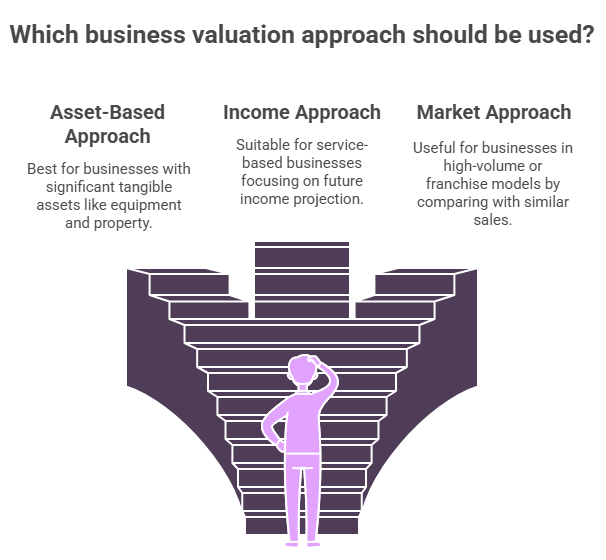Can You Keep Your Business in a Texas Divorce? What Owners Should Know
You’ve built your business from the ground up. Now you’re getting divorced, and suddenly the company you poured your blood, sweat, and weekends into feels like it’s on the chopping block.
Here’s the deal – if you’re in Texas, what happens to your business depends on when it was started, how it was run during the marriage, and how much documentation you have to prove who owns what. Texas is a community property state, which means everything acquired during the marriage is presumed to be split 50/50 – including businesses, unless you can prove otherwise.
But don’t panic. You’ve got options. Whether you want to keep the business intact, buy out your ex, or protect future growth, there are ways to structure a fair deal and walk away with your company still in your hands.
Is Your Business Considered Marital Property?
This is the first question every business owner in a Texas divorce needs answered: Is your business yours – or is it half theirs too?
In Texas, community property is the default. That means anything acquired during the marriage – income, houses, retirement accounts, even businesses – is assumed to be jointly owned, regardless of whose name is on it. To prove something is separate property, you need clear, convincing evidence that you owned it before marriage or acquired it through gift or inheritance.
Let’s break it down:
| Type of Business Ownership | What It Means in Divorce |
|---|---|
| Started before marriage | May be separate property, but any growth during the marriage can be community property |
| Started during marriage | Presumed to be community property, even if only one spouse ran it |
| Inherited or gifted business | Separate property, but income or reinvestment may complicate things |
What gets people in trouble?
- Using marital funds to expand a business you started before marriage
- Adding your spouse to payroll or making them a silent partner
- Failing to keep clear financial separation between personal and business assets
Pro tip: The more your spouse was involved – financially, physically, or even emotionally – the harder it’ll be to claim the business is 100% yours.
Texas courts don’t just look at the paperwork. They look at what really happened. Who invested time? Who covered expenses? Who helped it grow?
So, can you keep your business? Possibly. But only if you’re prepared to show the court how and why it shouldn’t be split like everything else.
How Businesses Are Valued in Divorce Cases
Before you can negotiate who gets what, you’ve got to put a number on the business – and that number matters. A lot.
Texas courts require a fair and accurate business valuation to figure out how much of the marital estate the business represents. This isn’t guesswork. It involves financials, expert analysis, and often two people who don’t agree on anything.

How is value determined?
There’s more than one way to get there:
- Asset-Based Approach – Adds up the value of tangible stuff: equipment, inventory, property, minus debts. Best for product-heavy businesses or those with lots of hard assets.
- Income Approach – Projects future income and adjusts for risk. This is common for service-based businesses like consultancies, tech firms, or solo practices.
- Market Approach – Looks at what similar businesses sold for. This one’s tricky in niche markets but useful for franchises or high-volume models.
Most Texas judges want to see reports from a neutral business valuation expert or CPA, not just what one spouse says it’s worth. And if you and your ex both bring in your own experts, expect those numbers to be wildly different.
Where things get ugly:
- Spouses who suddenly “forget” about income or underreport revenue
- Fighting over goodwill – what the business is worth beyond the numbers
- One side inflating value to get a bigger cut, or downplaying it to keep the company cheap
If you’re serious about keeping the business, you’ll want a valuation expert who understands Texas property law and has been in a courtroom before.
Options for Dividing the Business in a Divorce
Once the court figures out how much your business is worth, the next step is deciding how to divide it. And no, that doesn’t always mean your ex gets half the company – but they’re probably getting something.
Here are the most common ways business ownership gets divided in a Texas divorce:
| Option | How It Works | What to Watch For |
|---|---|---|
| Buyout | You keep the business and pay your ex their share of the value | Requires cash or trade-off in other assets (home, retirement, etc.) |
| Sell the Business | Business is sold, and proceeds are split between both spouses | Not ideal if you want to keep control or if the market’s down |
| Co-Ownership | Both exes keep their interest in the business and split profits going forward | Extremely rare – and risky. One wrong text and it could blow up |
In Texas, a court can’t force you to keep owning a business with your ex. If one of you wants out, the judge will look for a fair way to compensate that person – usually with a buyout or structured payment plan.
Think ahead:
If you do a buyout, will you owe it all upfront? Can you spread payments over time? Can you trade off retirement or real estate assets instead of cash?
Also consider: does your business have partners, investors, or an operating agreement? You may need to follow specific procedures before transferring or valuing ownership shares – and if you ignore them, your legal headaches will multiply fast.
How Prenups and Postnups Affect Business Ownership
If you’re a small business owner in Texas and you don’t have a prenup or postnup, you’re playing defense. If you do, you might be in a stronger position – but only if it was done right.
Here’s what these agreements can do:
- Lock down your business as separate property
- Set rules for how profits, growth, or appreciation will be treated
- Protect your partners or investors from getting dragged into your divorce
In Texas, both prenups and postnups are enforceable – as long as:
- Both parties signed voluntarily
- Full financial disclosures were made
- The terms aren’t so one-sided that the court calls it unconscionable
Prenups are signed before the marriage. Postnups come after. Both can protect business interests if they clearly define:
- Who owns what
- What happens to business income
- How future growth or sales will be split (or not)
Watch out for loopholes:
- If you used marital funds to grow the business – even with a prenup – you may have created a “community property interest”
- If your spouse worked in the business without pay, the court might assign them compensation, even if the business stays yours
Checklist for business protection in a prenup/postnup
- Clearly name the business and its current value
- Define how future increases in value will be handled
- Specify whether any buyout would apply (and how it’s calculated)
- Keep records and update the agreement if major changes occur
Bottom line? A well-written agreement can save your business. A sloppy one can cost you half of it.
Legal Strategies to Protect Your Business During Divorce
You’re getting divorced and you own a business. Step one: get your act together – fast. The way you handle things in the next few months could decide whether you keep your company or split it up like a checking account.
Here’s how to protect your business under Texas divorce law:
1. Keep your business and personal finances separate.
If you’re using the business account to pay the mortgage or hiding personal expenses in your books, stop. Now. That kind of commingling muddies the waters and can make your business look like a marital free-for-all.
2. Stick to corporate formalities.
If you’re an LLC, S-Corp, or partnership, follow the rules. File annual reports. Keep meeting notes. Sign contracts properly. Sloppy paperwork can open the door for your ex’s lawyer to argue the business isn’t a real separate entity – it’s just “you” with a logo.
3. Don’t make big moves without legal advice.
Selling assets, changing business structure, or shifting money around during a divorce can look shady – whether or not it actually is. Judges aren’t fans of games, and neither are forensic accountants.
4. Consider a buy-sell agreement.
If you’ve got business partners, your operating agreement should already say what happens if one owner divorces. If not, get one in place ASAP. It can prevent ownership from being transferred to an ex-spouse who’s never even seen your balance sheet.
5. Be smart about compensation.
Underpaying yourself to look broke can backfire. Courts look at the business’s actual income, not just what you take home. If you’re making the company rich but taking a $20k salary, expect the other side to call it out.
Texas-specific:
If the business is clearly separate property but it grew in value during the marriage due to joint efforts or funds, your spouse may claim reimbursement. That means you keep the business – but you may owe a chunk of money to account for their indirect contribution.
Bottom line? Every decision you make during your divorce can affect the business long-term. So be smart, stay clean, and get ahead of the strategy.
When to Hire a Divorce Attorney with Business Experience
If you’re a business owner going through divorce in Texas, you can’t afford to wing it with just any family lawyer. You need someone who knows more than custody schedules and who gets how businesses operate – because your business is an asset, a job, and your future all rolled into one.
Here’s when you need a business-savvy divorce attorney:
- Your business is the biggest asset on the table
- You’re the sole owner but it was started during the marriage
- Your spouse worked in or helped finance the business
- There’s a question about community vs. separate property
- You need a valuation or have financial complexity (multiple locations, employees, contracts)
What a good business divorce lawyer will do:
- Bring in qualified CPAs or valuation experts who won’t fold under cross-examination
- Draft smart buyout terms that protect your future cash flow
- Build a reimbursement or asset-trade strategy that makes sense
- Spot tax traps before they bite you two years later
And here’s the real kicker – not every experienced attorney is built for business cases. Make sure yours has handled ownership splits, worked with LLCs, and knows how to navigate court and negotiation when six figures (or more) are on the line.
If you’re serious about keeping control of your business, don’t cheap out here. The right attorney doesn’t just keep you out of trouble – they help you keep what you’ve built.
FAQs About Keeping Your Business in a Divorce in Texas
Can I protect my business if I started it before the marriage?
Yes – but only if you can prove it’s separate property. Keep detailed records from before the marriage. Also watch out for growth or reinvestment using community funds, which may create a shared interest.
Does my spouse automatically get half the business?
Not always. Texas courts aim for a “just and right” division – not necessarily a straight 50/50 split. But if the business is community property, your spouse may be entitled to part of its value.
What if my spouse never worked in the business?
Even if they weren’t involved, the business may still be community property. The court cares about how it was funded and whether it grew during the marriage – not just who showed up at the office.
How is a business buyout usually handled in divorce?
You can pay a lump sum, offer structured payments, or offset the value by giving up other assets like real estate or retirement. The goal is to make the division fair without dismantling your business.
Can I hide or undervalue my business to protect it?
Don’t. Courts can impose serious penalties for hiding assets or cooking the books. Judges – and forensic accountants – will find out. It’ll hurt your credibility and your case.
Should I freeze business changes during the divorce?
Yes. Making big moves like selling off assets or changing ownership mid-divorce can look suspicious and hurt your position. Always run changes by your attorney first.
Do I need a separate lawyer just for the business?
If the business is complex or has multiple partners, it may help to involve a business attorney or CPA in addition to your divorce lawyer. Your main attorney should still quarterback the strategy.
Call Brandi Wolfe to Protect Your Business and Your Future
When your marriage ends, your business doesn’t have to go with it. Brandi Wolfe knows how to keep what you’ve built from being dismantled in court. She brings real strategy, business insight, and Texas legal firepower to the table – and she’s not afraid to fight for what’s fair.
Call (210) 571-0400 to set up a consultation with a San Antonio Divorce Attorney and get the kind of legal support your business – and your future – deserve.

